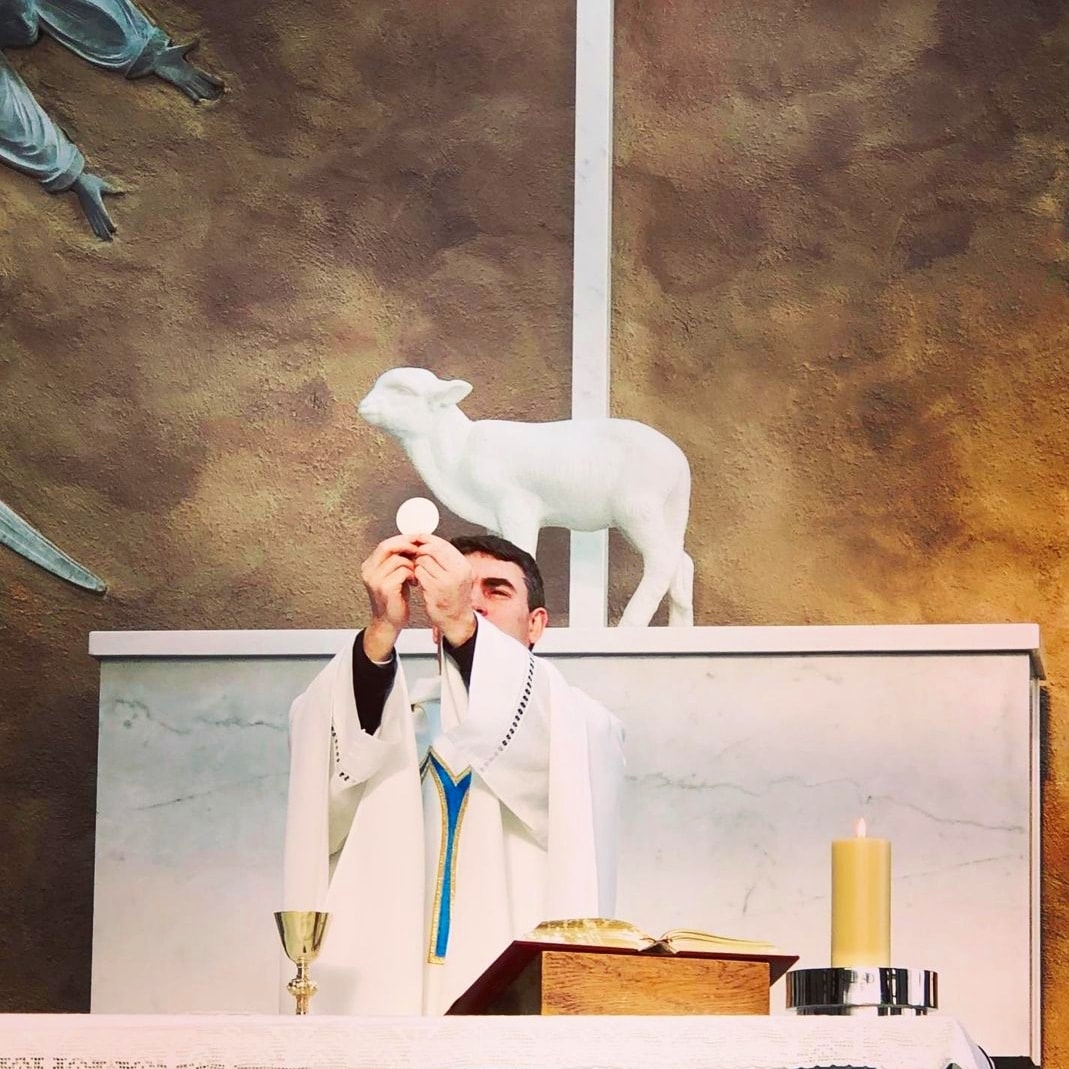
Jn. 6: 24-35
Mr. Sheridan Voysey has shared a moving experience of a missionary, Mr. Ben Sttags, in his book titled: “Unseen Footprints.” Mr. Ben and his team visited the Boshu people, an extremely isolated group in Ethiopia’s Me’en territory. He was welcomed by a local man named Mr. Golon Kabule. Ben explained to him the purpose of his visit over there that he wanted to speak about God, His mercy, love, etc. Anyhow, halfway through the conversation, Golon interrupted and told him: “we should follow Christosi.” It was the Me’en word for Christ. Ben was dumfounded because he had never uttered a word about Christ. He became very curious and wanted to know about his knowledge of Christ. Golon shared his experience that a few days before, he had a dream wherein Christ appeared to him and spoke to him, saying that he had given everything to Golon, his life, body, blood, bones. Therefore, he should follow him. And also mentioned that in five days’ time, someone would come to the land to instruct them about this way of life, and on the fifth day, Ben and his team landed over there…
All of us followers of Jesus are engaged in seeking him. The crucial question that we need to introspect on a daily basis is ‘why do we seek him?’ In today’s gospel, we see people seeking Jesus and his disciples. Jesus knew for sure that they were searching for him because he gave them stomachs full of bread and fish. Jesus instructs them clearly that their purpose of following him should not be for the mere gratification of their physical needs, but for the fulfilment of their spiritual needs, that is, their desire for God. Jesus takes them to their Exodus experience to have a deeper understanding of his own person. During their Exodus journey, God gave them Manna. We find a series of insightful reflections in the book titled ‘Jesus and the Jewish roots of the Eucharist’ by Dr. Brant Pitr. He explains that if the Israelites left Egypt with their cattle and herds, then why did they not kill those cattle and herds for their sustenance? It is true that God brought them out of Egypt, but he could not manage to take Egypt out of them. The Israelites during their slavery, very much absorbed by the polytheistic beliefs and cults of the Egyptians, could not think about killing these animals because they considered these animals objects of worship. We see a manifestation of this at the foot of Mount Sinai. They made an ox out of their gold ornaments and worshipped it, even after they had witnessed the mighty hands of Yahweh in their liberation. Therefore, the manna that the Lord provided was not a simple food, but it was a heavenly food and an assurance of God’s providence. Some contemporary scholars try to trivialize its divine origin, stating that the manna was a seasonal secretion of desert plants. This argument is not logical because the Israelites spent forty years in the desert. If it was seasonal, it could not have been available all the time. All these years, they received manna without fail. Another important detail is its taste. It tasted like a wafer mixed with honey. It indicated the foretaste of the Promised Land, which was known as the land flowing with milk and honey. The day they stepped into the Promised Land under the leadership of Joshua, manna stopped because they had first-hand experience of the Promised Land.
In remembrance of this divine food, Yahweh asks Moses to keep manna in the Ark of the Covenant. There is a passionate belief among Jews that when the Messiah comes, he will bring this heavenly food. When Jesus says I am the true bread from heaven, he wanted to convey to the people that he is the Messiah who not only provides manna, but he himself becomes Manna. Jesus clearly says: “For the bread of God is he who comes down from heaven and gives life to the world.” They said to him, ‘Sir, give us this bread.’ Jesus said to them, “‘I am the bread of life; whoever comes to me shall not hunger, and whoever believes in me shall never thirst. ” (Jn.6:34-35)
It indicates the fact that only Jesus could satisfy our hunger and thirst for God’s experience or transcendence.
The purpose behind our search for Jesus should not be meant for the mere satisfaction of our physical needs. Yes, it is possible that we may have to pass through this first stage, but we should not stagnate here, like the people who came in search of Jesus to fulfill their physical needs. Instead, we need to seek him further for spiritual satisfaction to satisfy our hunger and thirst for God by making him part of our being so that we may become part of his eternity.